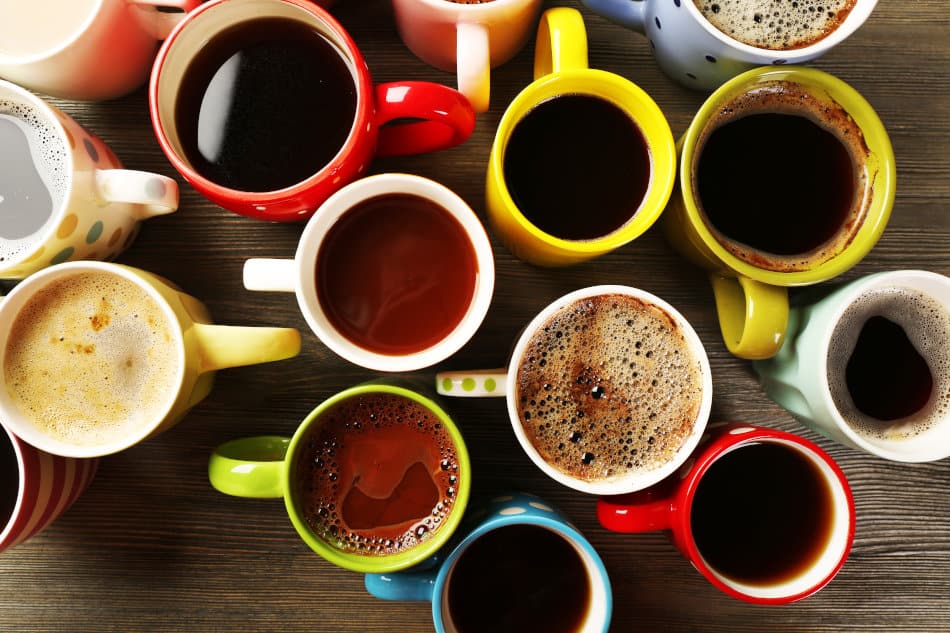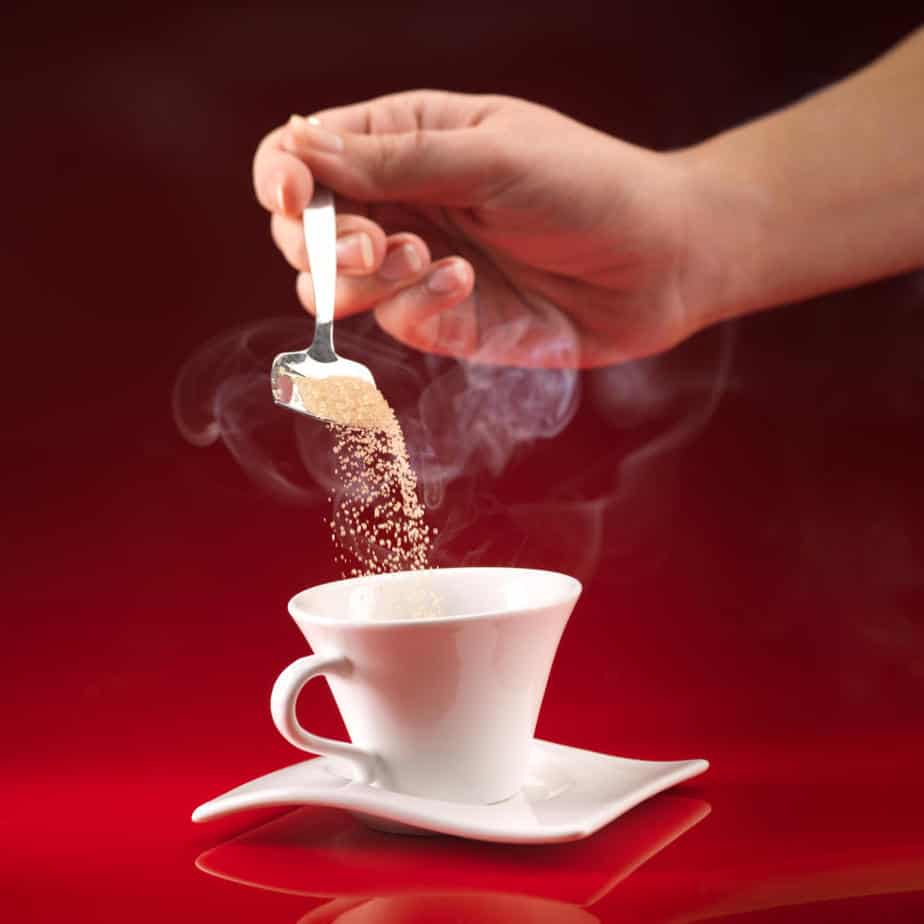Drinking coffee every day isn’t bad for us. It can be beneficial for our health. Millions of people around the globe ritualistically indulge in a cup of their favorite brew every morning.
Less than 400mg of caffeine per day provides the human body with several benefits, such as antioxidants, enhances the nervous system, and contains fat-burning properties. That is the equivalent of 4 or 5 cups of coffee. Over the above, it could create anxiety, headache, fast heart rate, or sleep disorders.

How Much Coffee Is Too Much?
According to the U.S. Food and Drug Administration or FDA, there are variations in how sensitive an individual is to the caffeine in coffee, as well as how quickly they can metabolize, or break it down. That being said, for healthy adults four to five cups of coffee a day shouldn’t present any negative side effects.
We can narrow that down to 400 milligrams of caffeine, daily. If a person consumes coffee, as well as other caffeinated beverages, it’s a wise idea to check the amount of caffeine in each one. Suppose they drink two cups of coffee every morning, and throughout the day they have several sodas or other caffeinated drinks, they’re likely out of the safe zone.
Does All Coffee Contain The Same Amount of Caffeine?
An average, 8-ounce cup of coffee contains between 80 to 100 milligrams of caffeine. That amount of caffeine varies depending on several factors:
- The Type of Coffee: Caffeine content varies widely based on the type of coffee. For instance, an espresso will have a higher amount of caffeine than a regular cup of Joe.
- Types of Coffee Beans: There are so many different varieties of coffee beans available. Not all beans are created equal, meaning some varieties will naturally contain more or less caffeine than others.
- The Roast: Light roast varieties of coffee contain a higher amount of caffeine than dark roasts. Many assume because it’s a dark roast and it has a deeper, bolder flavor that the amount of caffeine must be higher.
- Serving Sizes: Every 8-ounces contains between 80 to 100 milligrams of caffeine, so if you order a large coffee, it’s going to be somewhere around 300 milligrams in one cup.
If you prefer a smaller serving size, but a stronger drink, such as Ristretto, here you can get more information on Ristretto’s caffeine content.
The Benefits of Drinking Coffee
Did you know your morning cup of coffee brings health benefits to the table? Of course, we know it helps wake us up and provides a boost of energy but there’s more.
Coffee & Antioxidants: Coffee is one of the two highest antioxidant-rich drinks a person can have. The other is wine. While you can get a healthy dose of antioxidants from roasted coffee, green coffee beans contain higher amounts.
- Reduce The Risk of Heart Failure: Three different studies show us that drinking coffee can reduce the risk of long-term heart failure. The risk dropped from 5% to 12% per cup of coffee, daily compared to those who didn’t drink coffee at all.
- Protection From Parkinson’s: For years researchers have been studying the effects of coffee and Parkinson’s disease. Amazingly enough, the caffeine combined with other compounds found in coffee can help prevent Parkinson’s from developing, and it can also help people with PD better control their movements.
- Liver Health: Throughout the last 20 years, there have been several studies on the effects coffee can have on the liver. According to that research, regularly drinking coffee can highly benefit liver health.
- Alzheimer’s: Caffeine can block inflammation which is a huge benefit for delaying the onset of Alzheimer’s. Coffee can also positively impact key proteins in Alzheimer’s disease. Type 2 diabetes is linked to Alzheimer’s and coffee is linked to reducing the risk of developing type 2 diabetes. They say the proof is in the pudding, in this case, the proof is in the coffee. As time goes on more studies and research will be done to help identify any other health benefits of coffee. However, with the good comes the bad.
Negative Effects of Too Much Coffee
At some point in time, every coffee drinker has had to experience the jitters and anxiety that comes with consuming a bit too much coffee. Remember, too much of anything, even if it’s good, can be bad.
- Stress & Anxiety: Drinking too much coffee or any caffeinated beverage can lead to stress, anxiety, and even depression. There was a study done on the effects of caffeine and children. These days you can see little ones running around with specialty brews from their favorite coffee shop. Regardless of age, too much coffee can lead to unnecessary anxiety and stress.
- Sleep Disturbances: Too much coffee or coffee consumed too late in the evening can lead to restless sleep. It’s only natural to experience a lack of sleep when we indulge in our favorite brew too late in the day. After all, we typically drink coffee to help boost our energy.
- Weight Gain: It isn’t the coffee to blame here. The amount of sugar added and sugar-filled, flavored creamer is the real troublemaker. It all adds up over time.
Lucky us we got Specialty Coffee that can be drunk without sugar, learn more about it here.

How To Drink Coffee For Your Health: more benefits
You have all the rights in the world to drink your coffee how you please. However, if you are looking to avoid the negative effects while reaping the benefits, here are a few tips.
- Avoid Drinking Coffee After 2 In the Afternoon
- Swap Sugar for Stevia
- Don’t Drink Too Much Coffee
- Choose Quality Brands
- Avoid Artificial & Low-Fat Creamer
- Add Cocoa or Cinnamon For Extra Benefits
Drinking coffee every day can have a positive impact on your health. If you already have health issues you should speak with your doctor to find out how coffee can affect you. Coffee is amazing on so many levels but it’s essential that you drink it “right” to avoid the negative effects! You don’t have to skip out on your morning ritual. You should simply be more mindful about your body for your health. I think it’s time for another cup before it gets too late!